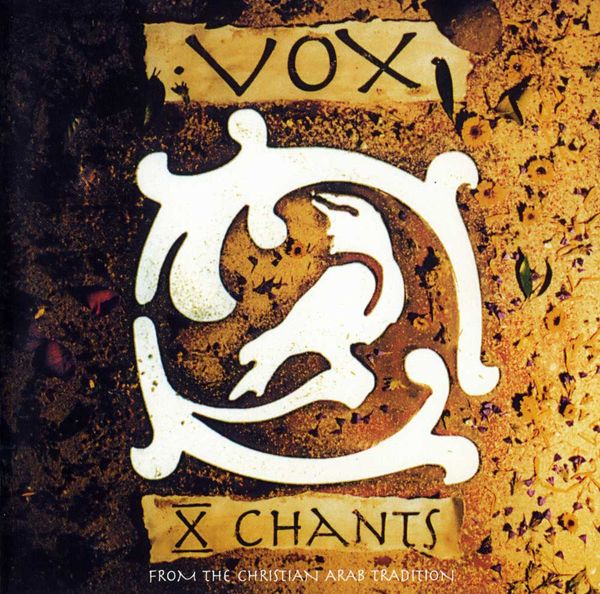VOX: X Chants / Divine Rites
- Kyrie Eleyson
- Crucifixion
- Holy Sepulchre
- Resurrection
- Annunciation
- Maria
- Holy Sepulchre
- Moses
- The Dove
- Alleluja
"Vox forges a unique, unforgettable alloy between ancient sacred mysteries and contemporary recording technology." Dirty Linen, 9/1999
"Drawing from early Christian women's chants of the Middle East, VOX centers on the regal tones of El-Hage, this time interpreting ancient feminist tracts from the 4th and 5th centuries, before women were banned from liturgical singing. … Religions and traditions blur in this fascinating 10-track collection, fusing some familiar religious dogmas with those of early Maronitic and Melkitic faiths of the ancient Middle Eastern churches … it is El-Hage's intense and spiritual voice that draws the listener like a moth to a sanctified flame." Derek Rath / amazon.com
"Bulgarian-born, Munich-based Vladimir Ivanoff is a composer employing electronic instruments to create a mostly neutral or subtly enhancing background to the sounds of antique tradition. On"X Chants / Divine Rites", Ivanoff turns to 11th and 12th century Christian chants from the Middle East. The focus is on the seeds of medieval Christian women's chants. Liturgical words dating back to the 4th and 5th century A.D. were adapted to fit the growing needs of a rising church. Fadia El-Hage, a classically trained Arabic vocalist, is an immensely gifted and expressive contralto. Her deep, powerful voice is also imbued with a transcendent spirituality when intoning these potent works. Sampling, synthesizers, and electric guitars are the instrumentation employed here on a recording of ancient beauty", Tom Schulte, AllMusic
VOX
X Chants from the Arab-Christian Tradion
Fadia El-Hage: voice / Vladimir Ivanoff: samplers and synthesizers / Wolfram Nestroy: electric guitars
Recording: Vladimir Ivanoff & Jochen Scheffter / 1994-1997 at Quatuor-Studio, Munich
Producers: Vladimir Ivanoff & Ulrich Rützel
All musical arrangements by V. Ivanoff
This recording is dedicated to my grandmother Mara Ivanova
The number of God's Eternity (Revelations - John 1,4):
Göttliches Grab / Holy Sepulchre 4:17
based on: 'Ya Yassou’ou' (part of the Kanon on Easter Sunday)
IV
The number of Heaven's Directions (Luke 13,29):
Auferstehung / Ressurection 3:17
based on: 'Al massihu kam'
V
Verkündigung / Annunciation 7:47
based on: ‘Inna-l-Malak / Istaniri’
(Maronitic / Melchitic Chant; Ode 9 of the Kanon from the officium on Easter Sunday, 1. Echos: Hymn from the Great Kanon of St. John of Damascus)
VI
Maria 4:45
based on: ‘Innâ-l-bârâyâ’
(Maronitic/ Melchitic Chants; Hymn for the Virgin Mary, on the feast of the circumcision of the Lord, from the liturgy of St. Basil, in the 2. and 6. Echos)
VII
The number of God's Creative Power (1. Moses 1)
Heilig / Holy 6:01
based on the trope 'Antoumoul-ladhin' of the Trisaghion ("Thrice Holy") in the liturgy on Easter Sunday
VIII
Moses 5:45
based on: ‘Inna Moussa’
IX
Die Taube / The Dove 7:40
based on: ‘Yâwno Tlito’ (ancient Syrian text from the Syrian-catholic and Maronitic tradition
X
The Number of the Divine Law (2. Moses 20,1)
Alleluja 7:46
(for Easter Monday)
* incl. Vat, excl. shipping






